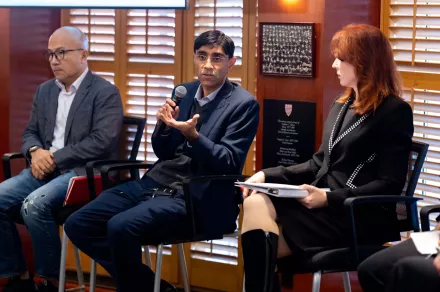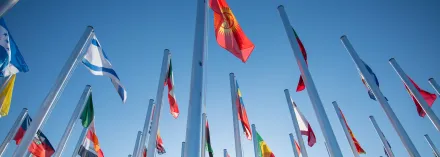
About the Project on Middle Powers
Vision
The Belfer Center for Science and International Affairs, with the Ash Center for Democratic Governance and Innovation, is conducting a project to examine how several important countries are navigating a shifting world order substantially marked by U.S.-China competition, and the implications of their choices.
This project stems from a recognition that one of the defining features of this era is the prominence and influence of the countries often called “middle powers.” This diverse group of countries are geographically, strategically, economically, or geopolitically important and cannot be ignored by either the United States or China, but are seeking to pursue their interests—and geopolitical influence overall—without getting trampled in the U.S.-China competition.
The project will seek to inquire where middle powers have sufficient overlapping interests and are able to exert their collective weight to sway the evolving geopolitical order towards cooperation and greater stability, or the opposite. Do middle powers have distinctive approaches toward particular policy areas, such as technology, energy and climate policy, international finance, and security and defense, among other critical areas that will influence global efforts to seize opportunities or tackle challenges in these domains? Are there issues of critical importance where middle power collaboration can create incentives to dampen the overall temperature of U.S.-China competition? What bearing would middle power projection have on American and Chinese policies and strategies to deal with each other and with these middle powers?
The Middle Powers Project will adopt both a country-specific and a cross-cutting thematic perspective. Project outputs will be published in diverse formats, with intensive engagement with policymakers and other interested audiences, beginning in 2025.

Origins and Aspirations
Moeed Yusuf, Belfer Center Senior Fellow and part of the project's leadership, explains how the project came to be.

Case Studies
Middle Powers research spans 13 countries, covering security, energy, technology, and other topics central to a changing world amid great power competition.
Case studies published so far: Brazil, India, Indonesia, South Africa, and Turkey.
